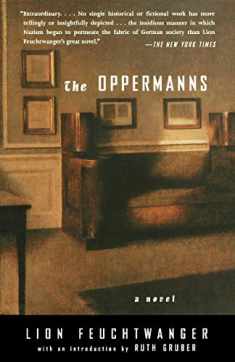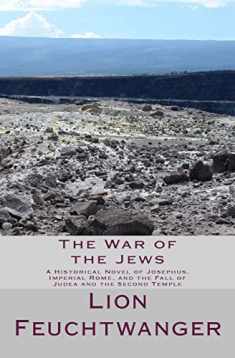
Jew Süss
Book details
Summary
Description
Product Description "The Book; yes, their Book. They had no state, holding them together, no country, no soil, no king, no form of life in common. If, in spite of this, they were one, more one than all the other peoples of the world, it was the Book that sweated them into unity. Brown, white, black, yellow Jews, large and small, splendid and in rags, godless and pious, they might crouch and dream all their lives in a quiet room, or fare splendidly in a radiant, golden whirlwind over the earth, but sunk deep in all of them was the lesson of the Book. Manifold is the world, but it is vain and fleeting as wind; but one and only is the God of Israel, the everlasting, the infinite, the Jehovah."-Jud Süss, 1925. When Feuchtwanger’s two best known novels “Jew Süss” (“Power”) and “Ugly Duchess” were first translated into English in the 1920s, they caused a tremendous sensation in England and then in America. The critics all hailed Feuchtwanger as the master of the historical novel—the peer of Dumas and Scott but written with the psychology of our own day. “Jew Süss,” set in the 18th century Germany (at the time consisting of numerous fragmented independent states), deals with an identity crisis: in order to gain social power, the novel's protagonist attempts to forsake his Jewish heritage and becomes assimilated into the mainstream of German culture. More than that, Süss finds himself being in the position of potential kingmaker. Brilliant, attractive and with an insatiable lust for power, he practically ruled the Duke and his court, pandering to the vices of dissolute nobility, mounting through his intrigues to dizzying heights of power. Süss’s only vulnerable spot, however, is his precious, exquisite, gentle daughter, Naomi. When her beauty became exposed to the beastliness of the Duke, tragedy came swiftly after. About the Author The celebrated German-Jewish writer Lion Feuchtwanger (1884-1958) was an incomparable master of the historical novel, applying his distinctive technique of projecting critical contemporary themes onto exceptional individuals and complex historical scenery from times long gone. Using a thorough knowledge of historical detail and playing the role of an enlightened philosopher with a highly idiosyncratic literary style, he engaged both ancient Jewish history and the dilemmas of Jewish existence in his key writings. Throughout his career, Feuchtwanger was drawn to a central theme of Jewishness, and his best work presents the enigma of the Jew and treats the quandary of being Jewish in a non-Jewish world. He depicts the predicament of the "modern" Jew, of whatever historical period, in achieving a synthesis of his or her particular relationship to the Jewish people and a universal relationship to all humanity. Beginning in 1925 with his instantly famous novel "Jew Süss" and followed by his "Josephus" trilogy-"Josephus" ("The Judean War"), 1932; "The Jew of Rome," 1935; and "Josephus and the Emperor" ("The Emperor and His Jew"), 1942-Feuchtwanger deals with the theme of nationalism versus cosmopolitanism, in the trilogy specifically via the life of Josephus Flavius, the renowned yet controversial Jewish historian of the first century. In these inimitable and haunting works, as also in his life, Josephus witnesses firsthand the tragic fall of Judea and the Jerusalem Temple, and then spends his life defending the Jewish cause on the world's greatest stage at the time, Rome. Feuchtwanger also wrote fascinating historical novels on Goya the artist, Benjamin Franklin in France ("Arms for America"), and Rousseau the philosopher. Toward his life's end in California, Feuchtwanger took up the theme of Jewishness again in his novel "Raquel, the Jewess of Toledo" (all available from MaKoM---see MaKoM Publications titles).


We would LOVE it if you could help us and other readers by reviewing the book
Book review





